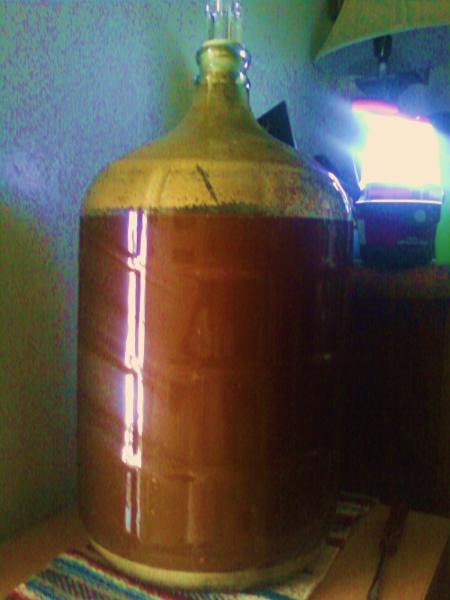ANewrBrewr
Well-Known Member
Hey guys so I've got a batch of PSA IPA it's only been in the primary for 7 days and the airlock bubbles once every five minutes or so....at this rate I'm thinking it will be done in a few days, however that would only be a week and a half of fermentation and I hear people talking about 3-4 week fermentation! If it's done its done right? Do I need to be more patient? It is also very cloudy as you can see in the picture. (I had an eruption so that is why there is gunk on the top of the carboy) I took a gravity reading yesterday and it was at 1.021. From what I hear the cloudiness will not affect taste, so if that is true it's not worth waiting weeks to clear it up. I dry hopped with pellets so this may help add to the cloudiness....(although the eruption put most of the pellets on my ceiling which I will post that pic as well)
To sum it up......can I simply rely on my gravity readings and airlock activity and then bottle. Or should I ferment for 3+ weeks as is often suggested?
Cheers


To sum it up......can I simply rely on my gravity readings and airlock activity and then bottle. Or should I ferment for 3+ weeks as is often suggested?
Cheers




























![Craft A Brew - Safale S-04 Dry Yeast - Fermentis - English Ale Dry Yeast - For English and American Ales and Hard Apple Ciders - Ingredients for Home Brewing - Beer Making Supplies - [1 Pack]](https://m.media-amazon.com/images/I/41fVGNh6JfL._SL500_.jpg)































